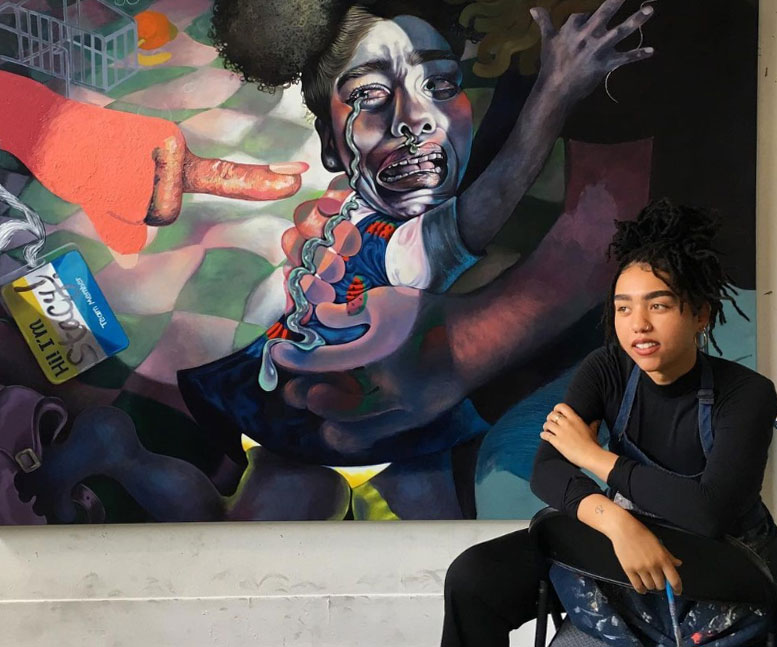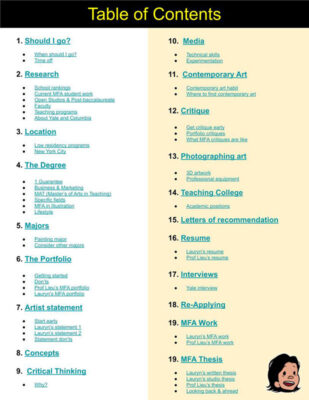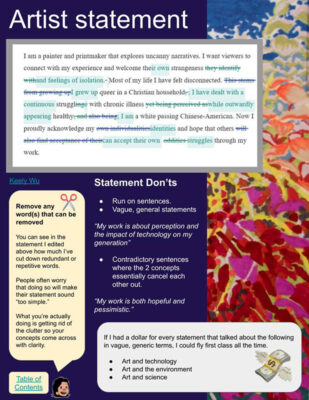The process of preparing a portfolio for an MFA studio art requires a level of maturity and engagement with critical thinking.
Discussion led by Art Prof Clara Lieu, Yale MFA graduate Leyla Faye and Hunter College MFA graduate (and Art Prof Teaching Artist) Lauryn Welch.

At the MFA level, the concerns shift from technical skills to developing a unique artistic vision. This video explores the challenges and strategies that come with preparing an MFA portfolio.
View Lauryn & Leyla’s accepted portfolios in the slideshow below.

Video Walkthrough
- Taking time off before starting an MFA is very useful.
- Having work experience before starting an MFA really helps when searching for a job later.
- Taking a gap year can be helpful.
- Post-Baccalaureate programs are a great bridge to MFA programs.
- Your technical skills are not important in an MFA portfolio.
- MFA portfolios shouldn’t look like assignments from specific courses from a BFA program.
- MFA portfolios are not about painting realistically.
- Your vision and ability to engage with your content matters.
- Many MFA programs in the US are around $70,000 per year.

- In person MFA interviews.
- MFA portfolios are about creating a body of work that is cohesive.
- MFA applications require a personal statement about your artwork.
- The reasons for getting an MFA are very different depending on the field.
- There is a huge number of MFA applicants for very few spots.
- MFA programs are extremely competitive because of numbers.
- How to find an MFA program that is a good fit for your needs as an artist.
- Customizing your portfolio based on the school you are applying to.
- Getting letters of recommendations from undergraduate professors.
Stop using generic advice
Even the best videos and resources out there only go so far. Eventually you will hit a wall, because your specific situation demands factors that isn’t considered in those resources.
Mentoring
Mentoring cuts out what’s not relevant, and concentrates your effort entirely into what will actually make a difference in your goals.
Prof Lieu’s Tips

I’m frequently surprised at how common it is for people considering an MFA to have inaccurate, or even totally wrong information.

I’ve spoken to many artists who were convinced an MFA was going to help them reach their goals, but after a call with me realized that an MFA wasn’t a good fit for them!

Depending on your field, an MFA may or may not be necessary.
A lot of artists who want to do freelance illustration think that an MFA in Illustration is necessary to succeed. Actually, no one cares in the illustration field if you have an MFA or not.
There are so many options for learning, doing a post-baccalaureate program, an artist residency, applying for an artist grant, and more that people often are not aware of.







